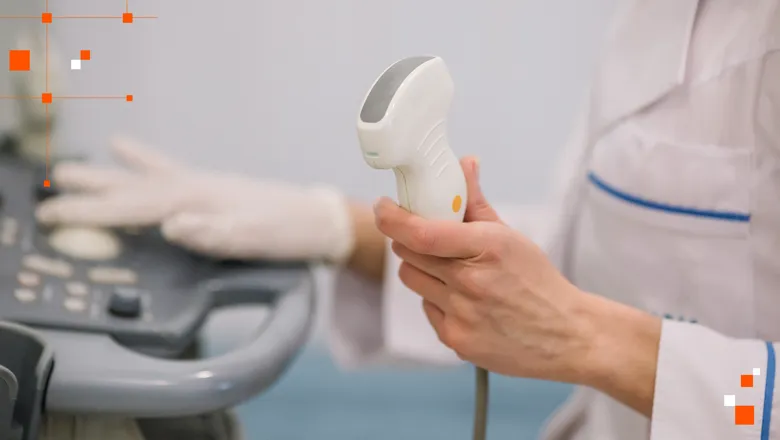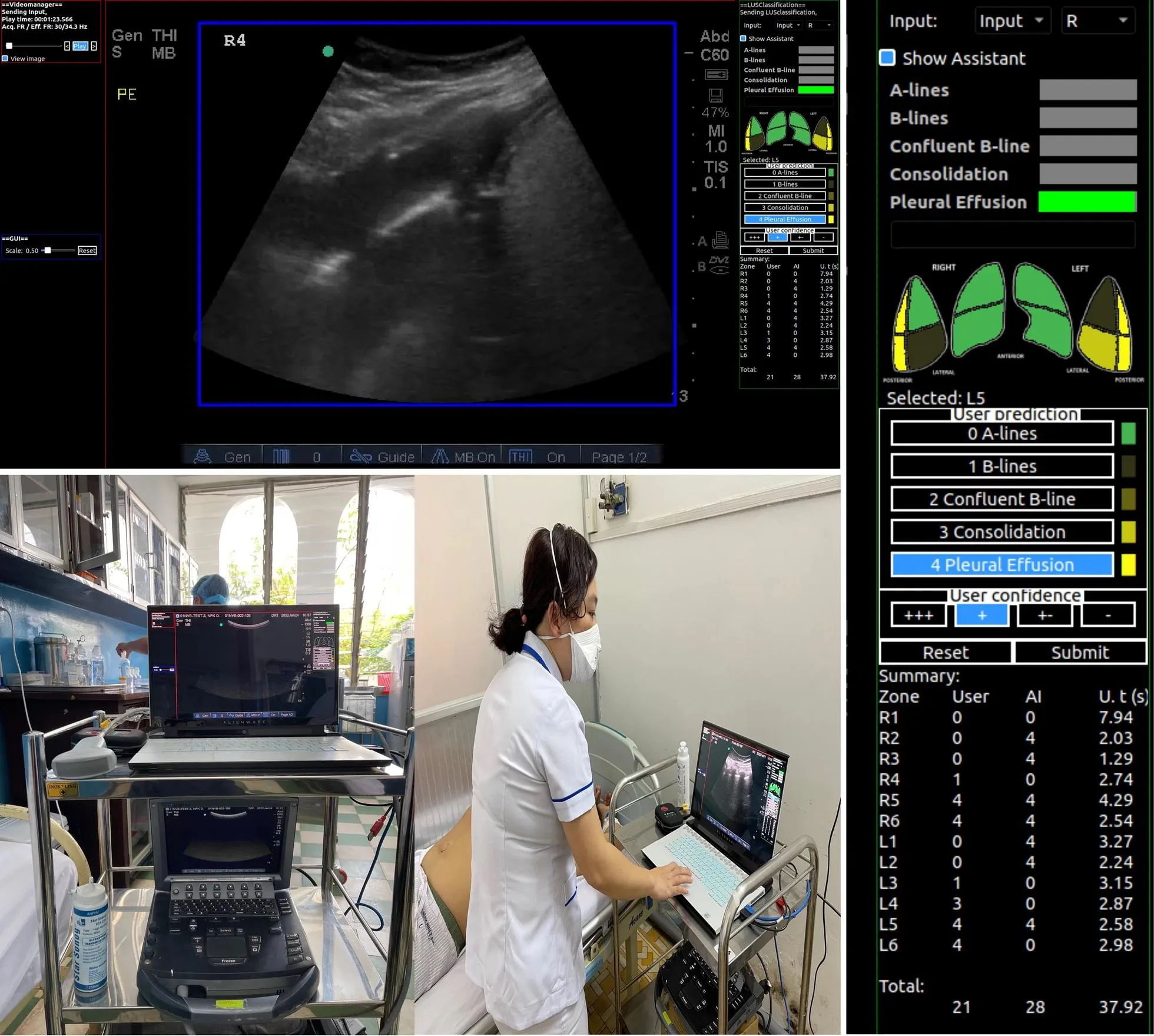There is a lot of good work on developing AI techniques for medical imaging, but much less on analysing the impact that they will have on clinical workflows. With the need to better manage critically ill patients, particularly in low resourced settings, the application of AI to assist non–expert clinicians in lung ultrasound can provide great opportunity for adopting widely and lead to improved patient care.
Nhat Phung, PhD student, School of Biomedical Engineering & Imaging Sciences, King’s College London
19 July 2023
New open-source AI tool supports clinicians to interpret lung ultrasounds
Researchers at King’s College London have developed a real-time AI-enabled lung ultrasound tool which can assist non expert clinicians in interpreting scans of ICU patients.

Despite the well–established evidence on the benefit of lung ultrasound in critically ill patients, the lack of extensive experience prevents clinicians from carrying out lung ultrasound in daily clinical practice. This is particularly prevalent in Low– and Middle– Income Countries (LMICs), where there are relatively few specialists, and formal lung ultrasound training is uncommon.
A new study, led by PhD Student Nhat Phung under supervision of Prof. Reza Razavi, Dr Andrew King and Dr Alberto Gomez, is pioneering the use of AI to support imaging in the Intensive Care Unit in LMICs. The study was carried out in Vietnam, where a new tool was developed to assist clinicians in interpreting lung ultrasound features more accurately, more quickly and more confidently.
“Our real–time AI–assisted lung ultrasound (RAILUS) is an open-source tool designed to be easy–to–use, and unlike expensive systems, our tool is run through a laptop computer and can be linked to most ultrasound devices,” said Nhat.
The study has shown that, when clinicians used the AI tool in real-time to carry out lung ultrasound exams for dengue shock patients, their baseline performance improved significantly from 68.1% to 93.4%. Clinicians were also able to reduce time sent on interpreting from 12 seconds to 5 seconds and were found to be more confident when doing so.
"In this study we not only show that our models outperform most clinical users, but that when users of all levels of expertise use our AI the performance is better than either the users or the AI alone. This is particularly ground-breaking for a real-time system designed to be used in a resource-limited low-income intensive care unit,” said Dr Gomez, Research Fellow in the School of Biomedical Engineering & Imaging Sciences.

This research was undertaken in collaboration with the VITAL project, with funding support from Wellcome. The paper “Clinical benefit of AI-assisted lung ultrasound in a resource-limited intensive care unit" has been published in the journal, Critical Care.




